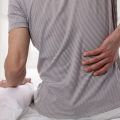4 Treatment Options for Depression

The American Psychiatric Association defines depression as major depressive disorder (MDD), a condition marked by a significant reduction in an individual's quality of life on several dimensions. It is characterized by feelings of emptiness, sorrow, and a lack of hope or joy, as well as thoughts and behaviors that greatly hinder everyday functioning.
Depression affects around one in every 15 individuals or 6.7% of the population. According to reports, one in every six persons (16.6%) will suffer depression at some point in their lifetime. Depression may be safely and successfully treated using a variety of treatments. Here is a list of four treatment options that can help manage depression.
1. Behavioral therapy
Behavioral therapy focuses on the connection between behavior and mood to address present issues and symptoms while also modifying patterns of behavior that contribute to difficulties in functioning. The person and therapist collaborate to develop short- and long-term goals that are unique to the individual.
During behavioral therapy, the individual analyzes their habits and reactions to stressful events that may be harmful in moving forward in life. Instead, the individual learns to engage in behaviors that are more likely to break the negative patterns. As the individual engages in more joyful activities and alters their behavioral patterns, their mood is likely to improve.
2. Lifestyle changes
Lifestyle changes are basic yet successful strategies in depression treatment. Even if you require more treatments, adopting healthy lifestyle changes can help you recover faster and prevent depression from recurring.
Exercise
Regular exercise has been shown to be just as beneficial as medication in relieving depression. Exercise not only increases serotonin, endorphins, and other feel-good brain chemicals, but it also stimulates the development of new brain cells and connections.
Diet
Eating correctly benefits your physical and emotional well-being. Small, well-balanced meals throughout the day can help you maintain your energy and avoid mood swings.
Sleep
Sleep has a significant influence on mood. When you don't get enough sleep, your depression symptoms become worse. Sleep deprivation causes irritability, moodiness, anxiety, and fatigue. Make sure you get adequate sleep every night. Aim for anywhere between seven and nine hours every night.
Stress relief
Too much stress worsens depression and increases your chances of developing it again. Find strategies to reduce the stressors in your life, such as work overload or unsupportive relationships.
3. Antidepressants
The primary medical therapy for depression is antidepressant medication. When a person has a moderate to severe episode of depression, antidepressant medication may be recommended in addition to psychotherapy. Antidepressants are occasionally recommended when other approaches have failed or when psychological treatments are unsuitable due to the severity of the ailment or a lack of access to the therapy.
People with more severe types of depression, such as bipolar disorder and psychosis, typically require medication. This may include one or more mood stabilizers, antipsychotic medications, and antidepressants. Antidepressants often take at least two weeks to begin working, and it may take some time for the doctor to choose the best medication and dosage.
The length of treatments with antidepressants is determined by the severity of the ailment and how the patient responds to treatment. Stopping medication should be done gradually, at the doctor's direction, and under supervision.
4. Electroconvulsive therapy (ECT) and transcranial magnetic stimulation (TMS)
ECT is a sort of brain stimulation therapy used for those who have not responded to other forms of depression treatment. ECT involves the precise delivery of brief electrical shocks to the brain. ECT is often effective for suicidal people who are unresponsive to medication treatment or psychotherapy.
TMS is similar to ECT; however, it uses magnets rather than an electrical current. It is often recommended for patients who are unable to take drugs, such as the elderly, pregnant women, and adolescents. TMS uses focused magnetic pulses to stimulate or inhibit particular parts of the brain. This restores the normal functioning of brain circuits linked with mental or neurological problems.
Other articles and publications:
Articles and publications of other companies:
- +1 (646) 270-9836
- Long Island City
- grantny.com









